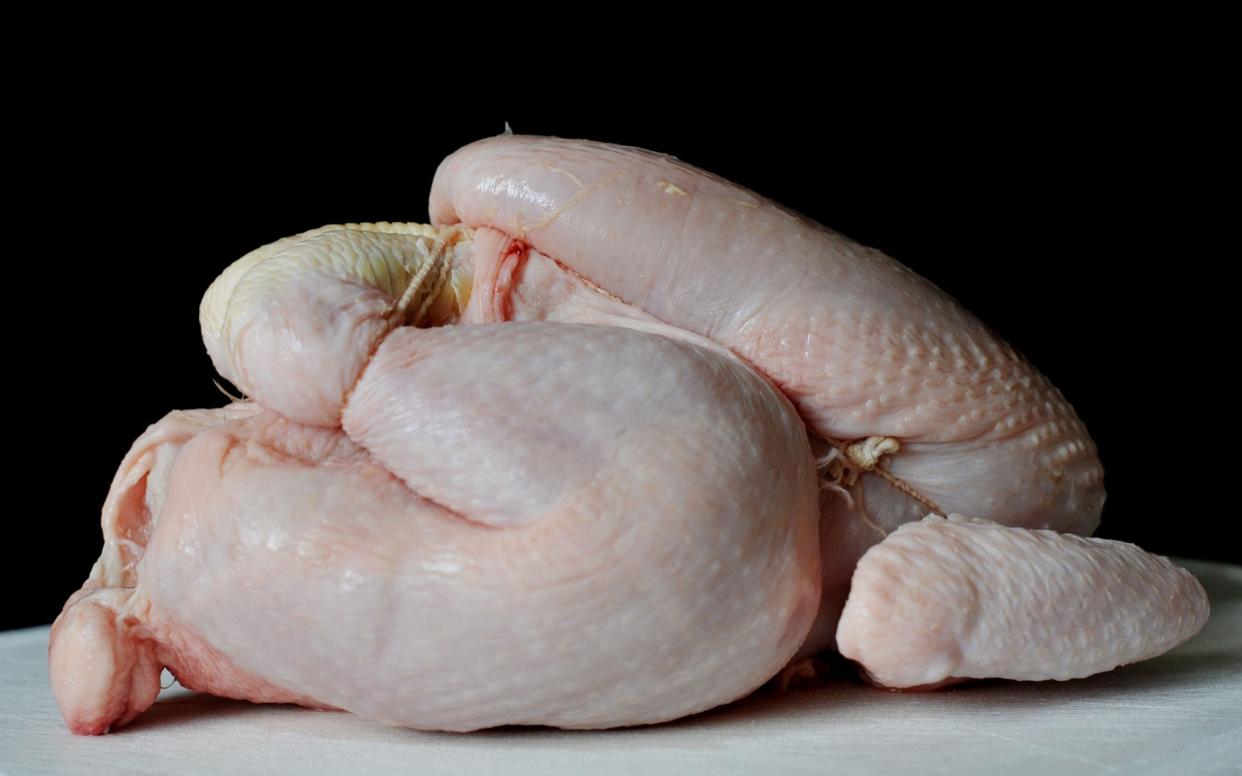There is no health reason to ban chlorinated chicken, says Government's scientific adviser

A Government scientific adviser has said that there are no health reasons to ban chlorinated chicken imported from the US after Brexit.
Sir Ian Boyd, chief scientific adviser at the Department for Environment, Food and Rural Affairs (Defra), said there was no scientific evidence that the meat is harmful and it should be up to British consumers to decide if they want to eat it.
It is common practice in the US to to sterilise chicken carcasses with chlorine as birds are often in such crowded conditions that infection rates with salmonella and listeria are high.
Sir Ian Boyd said: "From a health perspective there really isn't a problem with chlorinated chicken.
"The issue is about production processes and animal welfare, and that is a values-based choice that people need to make.
"My view is that we need to be allowed to make that choice.
"But it is the job of people like me to make sure that we explain as clearly as possible what the consequences of different choices are for people," he told Sky News.
He added that there was no good reason to ban hormone-treated beef either as the amount of hormone is extraordinarily small.
"The chances are that most of it will have been metabolised when it comes into the meat you would eat," he said.
"The chances of it having any biological effect on us is almost infinitesimally small."
The EU has banned the feeding of hormones to cattle over fears that it may cause cancer.
Ahead of becoming the Prime Minister Boris Johnson said in March this year that chlorine-washed chicken was a "public safety no-brainer", while US Ambassador Woody Johnson has insisted it should be included in a future trade deal.
But the National Farmers' Union has warned cheap production methods could put British poultry producers out of business.
Sir Ian is to step down as Defra's chief scientific adviser after seven years in the position. His successor is Professor Gideon Henderson, an expert in ocean sciences and climate change.

